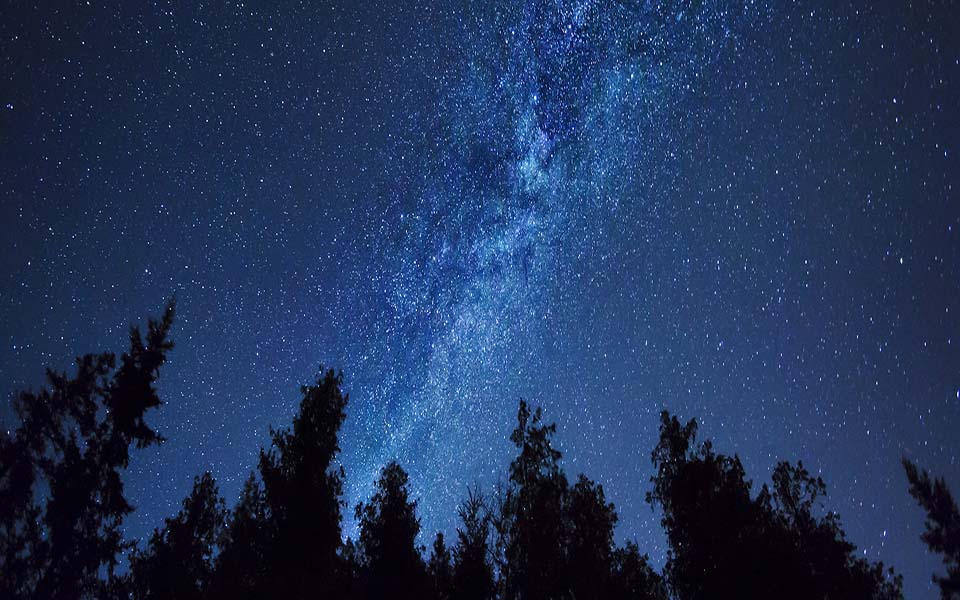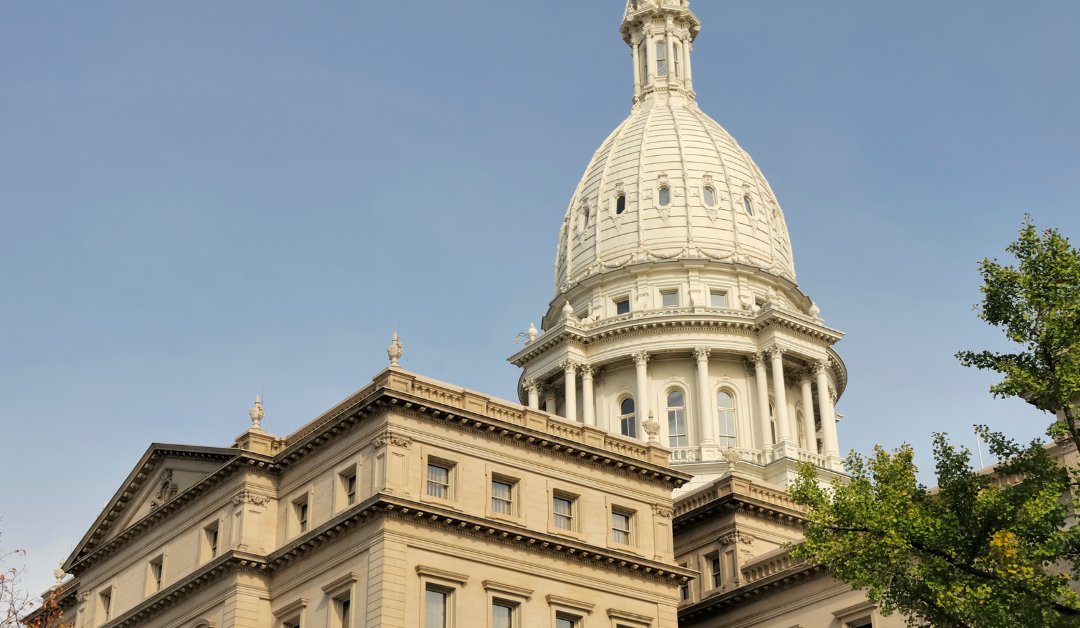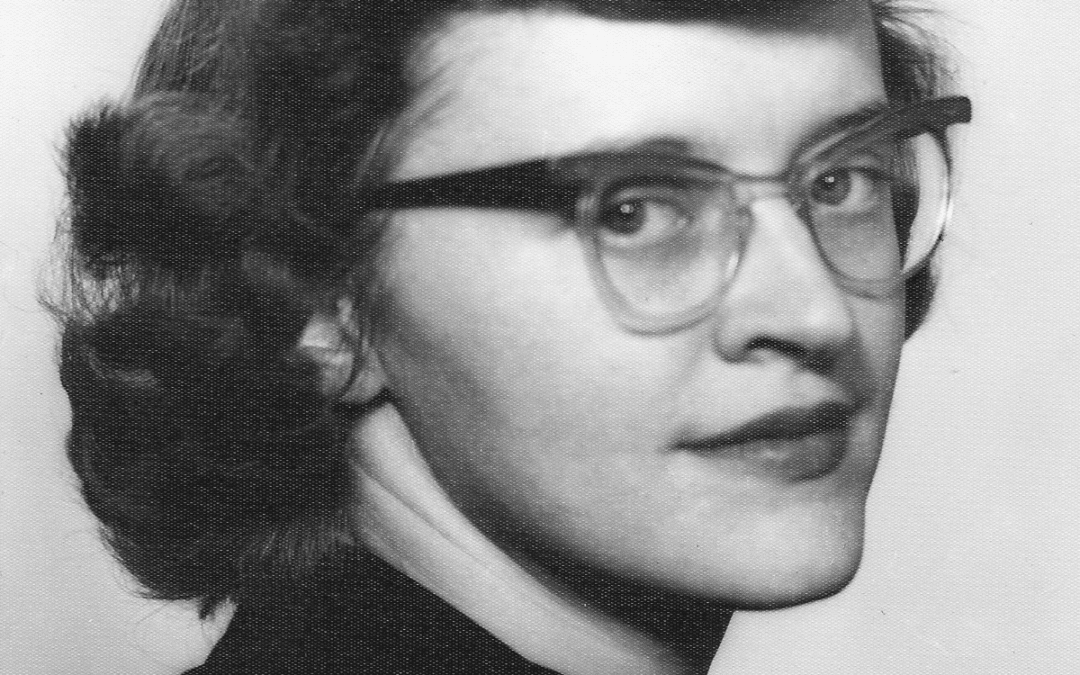
PHOTO CREDIT: Headlands International Dark Sky Park, Mackinaw City, Mich.
Imagine the most profound, the most resonant, the most three-syllabled “WOW” you can think of. It may help to conjure the voice of actor James Earl Jones to truly imagine it properly. Do you have it? Good. That is how this story will end: “WOW,” and James Earl Jones is the person who will say it. Everything you’re about to read is true.
As many great stories have done, this one starts in Northern Michigan. It was 14 days following the Sept. 11, 2001 terrorist attacks, and five weeks into my first job, as a reporter for the Petoskey News-Review.
The event I was covering that evening had been nearly called off a dozen times by the time it began. James Earl Jones—the legendary voice of Darth Vader and CNN; the Emmy, Grammy, Oscar, and Tony award winning actor—was scheduled to speak at Petoskey Middle School as part of a series put on by the local community college. But no one was quite sure what to do with themselves at the time, and the question of anyone’s safety still hung in the air like a cloud around us all. Would anyone even show up? Could Jones possibly give the talk he’d written well before 9/11, now that everything and everyone had changed? And of vital importance: After being shaken by such culturally divisive attacks, could anything to do with everyday life reconnect our community?
I arrived at the middle school wearing the most professional outfit I had at 21 – a skirt suit I’d bought for my job interview the month before. Immediately after finding a seat in the press row, a stern-faced celebrity handler came over to say that recording devices would not be permitted, and pointed to the tape recorder that was already running in my shirt pocket. Behind him, my counterpart at the Traverse City Record-Eagle—the newspaper in the next big town over—chuckled, and I made a show of putting the recorder away in my bag.
“After the talk—” I began, but the handler cut me off.
“Do you know how many airplanes we had to take to get here?” he said. “Not a chance in hell we’re staying late to do press.”
The handler moved on and the other reporter sat down next to me. The Record-Eagle had poached Keith Matheny from the Petoskey News-Review a few years earlier, and bitterness over the deal had developed between the two papers. That’s how good Keith was. Sweating from nerves, I pulled off my suit jacket and hung it on the back of my chair.
The auditorium was packed. It was clear that for many in the audience, this was their first time out since 9/11. They were cautious with one another; their smiles—while genuine—were tired. And yet, they were excited to be there, either because they were fans or because they wanted to be near someone who had, just a few days before, been at Ground Zero. My own knowledge of James Earl Jones in those early-Internet days was embarrassingly little. While I’d heard his voice in “Star Wars,” the work I was most familiar with was too obscure to offer any practical background on the actor. Instead of watching “Field of Dreams,” or “The Hunt for Red October,” I had spent my teenage years babysitting my little brother, David, who had spent many hours of his childhood listening to a book-on-cassette tape called “Abiyoyo.”
Originally a Bantu lullaby, “Abiyoyo” had been adapted into an English-language folktale by American singer Pete Seeger. It told the story of a community that drove away a young boy and his father for singing, playing music, and doing magic. But when a raging giant called Abiyoyo came to town, the father and son captured his attention by singing his name over and over: “Abiyoyo, Abiyoyo, Abiyoyo.” Once he slowed down to listen, they used their magic to make him disappear, saving the town. The book-on-cassette was read by James Earl Jones.
That night at Petoskey Middle School, Jones put his scripted talk aside in favor of the news of the day and his worries for its effects on young people. “Children should not see planes crashing into buildings over and over,” he said. Instead, he felt they should be given more opportunities than ever to express themselves through art. Next to me, Keith wrote in his notebook. I scribbled maniacally, copying Jones’ speech word for word and filling my notebook cover to cover. The rivalry between our two newspapers fueled my desire to get it right. I knew that when the paper came out in the morning, the story above the fold—for the first time in 15 days—would not be one of fear.
When the talk ended, Keith and I leapt from our seats to jockey for position in the hall, where Jones would pass on his way to the exit. As he emerged from backstage, a security team on high alert surrounded him. He walked the hallway slowly, a soft, sad look on his face, and politely spent a moment with the fans who were waiting to see him.
As Jones came closer, Keith called out questions while I scrambled to think of anything that sounded like I, too, belonged with the press. But the more I searched the more my mind landed, to my absolute distress, on one line, repeated over and over, like a Bantu lullaby.
“Abiyoyo,” I blurted out, when the giant of a man passed by. His handler stepped between us. Taller than him by half a foot, James Earl Jones looked over the man’s shoulder and smiled at me. “I love Abiyoyo,” he said. “Come with me.”
I followed him to a nearby classroom, where he shut the door on his security team, gestured to a table, and chuckled.
“It is so good to remember Abiyoyo today,” he said. “Where is your recorder? Let me give you an interview.”
We talked about his childhood in Michigan and my brother David and the tragedy befalling our country, and when our conversation was over he hugged me and I walked from the room into a dark and empty hallway.
The lights were out in the auditorium, too, as I threaded back through the aisles to find my jacket. By the time I made it to my car the parking lot was empty, and when I turned the key in my ignition nothing happened. In my back seat I found last winter’s snow pants and pulled them over my skirt and nylons, then clicked in my pumps down the dark sidewalk toward home.
Between the middle school and my apartment stood the small, resolute newsroom. If I wrote the story tonight, I thought, I could do a proper job of it. With the morning would come the crunch before deadline, the phones ringing and editors calling out wire stories as they broke, but this late night offered a rare quiet newsroom.
The night. If you’ve ever walked through Northern Michigan at night you’ll know what I mean. In September the Big Dipper prowls low in the sky, and the last of summer’s meteor showers look so close you could almost touch them. Fall’s chill comes early Up North, and whether you can see Lake Michigan or not you can feel its presence nearby, shushing along the limestone and spraying droplets that have come from the St. Lawrence Seaway and the Mississippi River. Bars downtown claim to be haunted by the ghost of Ernest Hemingway, and television mediums had made specials out of the spooky Victorian hotels dotting the waterfront for years. In the neighborhoods along the shoreline, police were sometimes called to relocate bears who’d climbed into trees, and just recently a cougar had sauntered past an early bird out for a sunrise walk. Not long after this night, in fact, a deer would run through the glass pane of the News-Review’s entryway, its impressive antlers shattering a path into the newsroom.
From the swishy bottoms of my snow pants, my pumps clicked on the sidewalk.
Slowly, the quaint gaslights in downtown Petoskey revealed the edges of the News-Review. First the small building in the front, where I now had a full-time job in the honorable and seemingly unshakable field of print news. And then, the hulking pressroom attached to the back, where the paper was printed each morning and which was the only part of the building I had still never been.
I cut through the parking lot to the newsroom entryway. I unlocked the door and went inside.
Before I could hit the lights, I heard it: A low rattle, like the tracks under an approaching train. My hand hovered over the light switch and I thought about everything terrible it could possibly be. A flat, bitter odor wafted past, and I followed it through the cramped rooms to the back of the building.
The press. It is almost impossible to imagine now, in 2022, how such a machine could be dedicated to so fleeting a product. But if you’ve lived in a time when newspapers arrived with regularity on the doorsteps of every home in your neighborhood—when we opened the pages and got ink on our hands and even if we were only looking for the funnies, we communed with the news in a way that never seemed important until now, when cable news channels think nothing of a 24/7 “Breaking News” banner—you can remember when it made sense to attach massive rolls of paper to a football field’s worth of metal rods and cylinders, and smash it all with ink and hang each piece to dry on its way to be folded and addressed and shoved into bags and hand-delivered before dawn.
I had never been in the press room but there was no choice for it now, when just days ago the unyielding Twin Towers had yielded. For two weeks our little newsroom had done what we could, taking down names from people in town and calling our colleagues nine hundred miles away, in a place where cell phones—Kyoceras and Nokias and Motorola Razrs—ran on tendrils of networks that stood no chance in a crisis. Dial-up and DSL, the internet of the day, were out of the question near the towers, and landline telephone connections were spotty at best. So we called newspapers that had service and read off our lists of names, and while we waited for them to call us back with any good or terrible news we went around and asked people how they were doing. No one was doing very well.
And yet we had power. We had lights and heat and water and control over some of the things in the immediate, reachable world. And because we had such things we also had meetings, for zoning boards and school boards and hospital boards. Babies were born and old people died, and next to whatever news we could offer the people of our town about the people of our country, we at the paper wrote the honorable and seemingly unshakable print news.
I watched the infinite reams of paper unrolling in front of me, winding themselves around metal rods and eventually churning into a basket nearby, shiny and soft and a fully formed newspaper. Breathing and warm, they’re impossible not to touch straight off the press. Just as I reached for an inky front page, another sound startled me and I turned to see a giant man standing in the double doorway of the press room. In his hand, he held my tape recorder.
In the next run of this printing press, the paper that fell soft and alive into a basket at the end of the line would feature him—above the fold, the first kind of hope in 15 days. James Earl Jones blinked at the dinosaur-sized newspaper factory, and then remembered why he had come.
“The door was unlocked,” he said, handing me the tape recorder. “I thought you might need this.”
I took it with gratitude, and shook off the sudden panic of almost having lost my scoop. He came up next to me then, and we stood side-by-side watching the papers drop into the basket. Anything we’d been able to glean from people in New York topped the pages, next to the news of how our small city would move forward: zoning boards, school boards, and the life that continued on after a tragedy. James Earl Jones reached down and ran his hand across a still-warm front page. He lifted his fingers to look at the ink smeared across them, then turned to me and smiled. “Wow,” he said.
***
Some things never change: Local news can still bring communities together. Thanks for being part of the good work to get back to one another.
And Keith Matheny is still at the top of his game. Read his work as environmental reporter for the Detroit Free Press here.
Politics

It’s official: Your boss has to give you time off to recover from childbirth or get an abortion
Originally published by The 19th In what could be a groundbreaking shift in American workplaces, most employees across the country will now have...

Michigan Dems win special elections to regain full control of state government
LANSING—Democrats won back a majority in the Michigan House and restored their party's full control of state government Tuesday thanks to victories...

Trump says he’s pro-worker. His record says otherwise.
During his time on the campaign trail, Donald Trump has sought to refashion his record and image as being a pro-worker candidate—one that wants to...
Local News

That one time in Michigan: When we became the Wolverine State
How did Michigan become tied to an animal that's practically nonexistent there? Among the many nicknames that the state of Michigan has, arguably...

Readers’ Choice: Top 5 Bowling Spots in Michigan
From retro lanes — including one of the oldest running bowling alleys in the country — to modern entertainment centers, there's something for...





